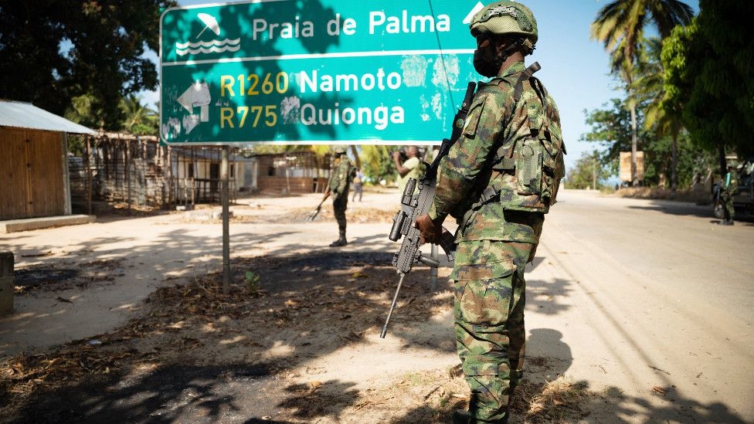Security analyst, Richard Kumadoe, has voiced his displeasure with politicians leading public education on sensitive matters such as terrorism.
This follows reports that Vice President Mahamadu Bawumia would be leading a public education charge against terrorist attacks in the country.
Speaking in an interview on The Pulse on Monday, he stated that it is not advisable.
“I have a problem when politicians take charge. That is why they are misquoting many things. I have a problem when politicians lead such a sensitive issue,” he said.
He added that “when we leave it for politicians, it becomes like the galamsey issue. It will divide us straight in the middle –NPP, NDC and we will not go anywhere. And the danger is that the element of surprise is what we are all fighting to prevent.”
According to Mr. Kumadoe, National Security personnel should be made to carry out such tasks.
This, he explained is because the National Security “are better informed and better equipped to bring everybody onboard.”
Meanwhile, the Deputy National Security Coordinator, Edward Kweku Asomani, has said that the African continent has experienced about 346 terrorist attacks within the first quarter of the year.
He said out of the recorded attacks, 49 per cent occurred in the West African Sub-region.
Mr. Asomani said the figures indicated that the sub-region had become a hotbed for terrorism and, therefore, necessary to create awareness on security consciousness among the citizenry.
The Security Coordinator said this during a media engagement in Accra on measures being taken by Government to combat terrorism.
According to him, Ghanaians need to be vigilant because the nature of the threats is unconventional – did not involve Armoured Personnel Carriers (APCs) or fighter jets.
Mr. Asomani said the threats came in many forms, such as, through one’s pastor in the church, a cleric in the mosque, and individuals coming in as Civil Society Organisations purporting to do community work.
He said a study of the various attacks in the sub-regions showed that the terrorists usually exploited existing fault lines such as ethnoreligious conflicts, and communities that felt alienated or had grievances towards authorities.
Mr. Asomani, therefore, urged residents on Ghana’s borders not to fall victim to such situations and quickly report any suspicious individuals and activities to security authorities.
Latest Stories
-
Betway Africa offers a once-in-a-lifetime ‘Play-on-the-Pitch’ experience at Emirates Stadium
47 mins -
The rise and fall of Matt Gaetz in 8 wild days
49 mins -
School Feeding Programme: Bono East NIB seizes smuggled rice, arrest driver
1 hour -
Dr. Razak Opoku: Despite challenges, facts and data still prove NPP is better manager of the economy than NDC
1 hour -
Seidu Agongo: On December 7, it must be peace over power
1 hour -
2024 Election will take place on December 7; ignore misleading claims – EC
1 hour -
GPL 2024/25: Asante Kotoko bounce back with win over Aduana FC
2 hours -
GPL 2024/25: Gold Stars beat Vision FC to retain top spot
2 hours -
Ebo Whyte returns with ‘The 4Play’
3 hours -
2024/25 Ghana League: Heart of Lions sink Legon Cities to go third
4 hours -
Bright Simons: DBG, Ghana’s top development bank, goes for the jugular
4 hours -
Governance and Entrepreneurship consultant demands global support for Africa’s young farmers
4 hours -
Ghanaians reminded to prioritise regular health check-ups
4 hours -
Salah brace sends Liverpool 8 points clear
4 hours -
Leicester City sack manager Steve Cooper
4 hours

